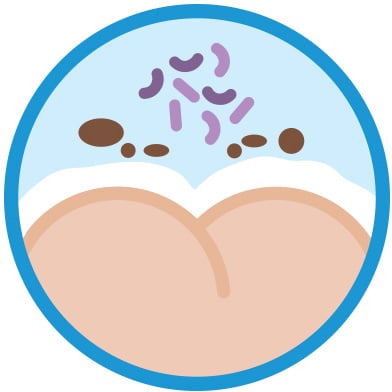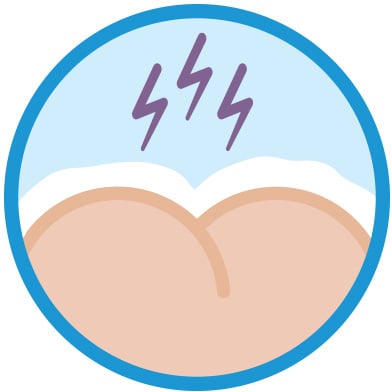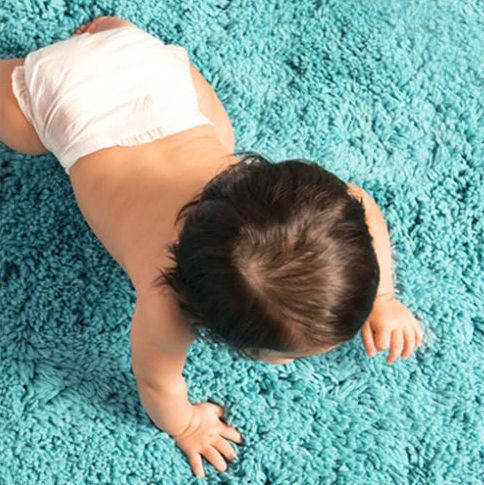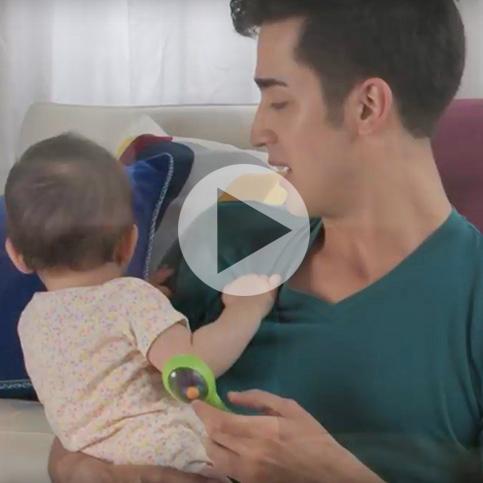What it is Barrier Cream?

DESITIN® products create a protective barrier on contact
Applying a barrier ointment or paste protects the skin from further injury while creating a more optimal environment to allow the skin to heal. It will also help prevent friction from the diaper.
Apply a thick layer of a zinc oxide product, such as DESITIN® Maximum Strength Original Paste or DESITIN® Rapid Relief Cream, at each diaper change to soothe and protect your baby’s irritated skin.

Block out moisture

Protect against fecal enzymes & bacteria

Reduce friction
Zinc oxide treatments can help treat and prevent diaper rash by
- Forming a protective layer on the skin
- Blocking wetness
- Protecting against the enzymes found in feces
- Protecting and soothing irritated skin, allowing it to heal naturally
Apply ointment liberally as often as necessary, with each diaper change, especially at bedtime or any time when exposure to wet diapers may be prolonged.
Don’t be concerned about using too much. You can apply as much DESITIN® Maximum Strength Original Paste or DESITIN® Rapid Relief Cream as needed, and as often as necessary.
The risk of irritation can be reduced by frequent diaper changes to prevent prolonged contact with urine and feces. Gently cleanse the diaper area, ensure the bottom is dry, and then apply a diaper rash treatment to create a protective barrier. An effective barrier can protect the skin from wetness and diaper irritants and, by reducing friction, can help limit the potential penetration of irritants.
Maintain a suitable degree of hydration: If the water content of the skin drops below 10%, the cells of the top layer of the skin, the stratum corneum, contract inward and can form cracks and scales that allow microorganisms to penetrate. Because overly hydrated skin can break down more quickly with friction, it is important to use a barrier ointment to help protect the skin from urine, stool and the friction and rubbing that can come from the diaper. Therefore, the normal water content of the skin should be maintained with appropriate skin care products, which not only create a barrier but also offer skin moisturizing and skin conditioning.
Reduce contact with environmental irritants: Infant skin shows greater susceptibility to environmental irritants, particularly urine and feces in the diaper area.
Reduce friction: Friction can be reduced or avoided by removing one of the opposing surfaces.
- Dress your baby in soft, loose-fitting garments
- Dry your baby thoroughly after bathing, with special attention to folds and creases in the skin
- Apply skin protectors such as DESITIN® ointment, which create a protective barrier between opposing surfaces, thus decreasing friction
Find out what steps you can take to help reduce your baby’s chance at getting diaper rash.
Diapering tips
Watch this video to get diapering tips to keep your baby’s skin dry and diaper rash free.



